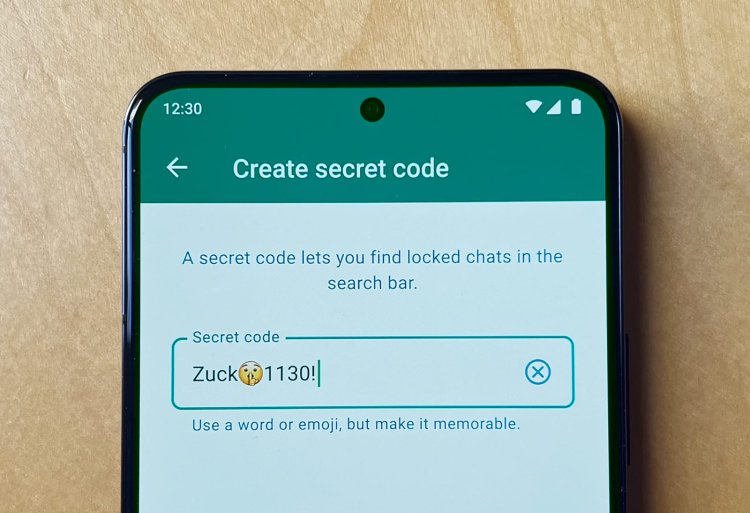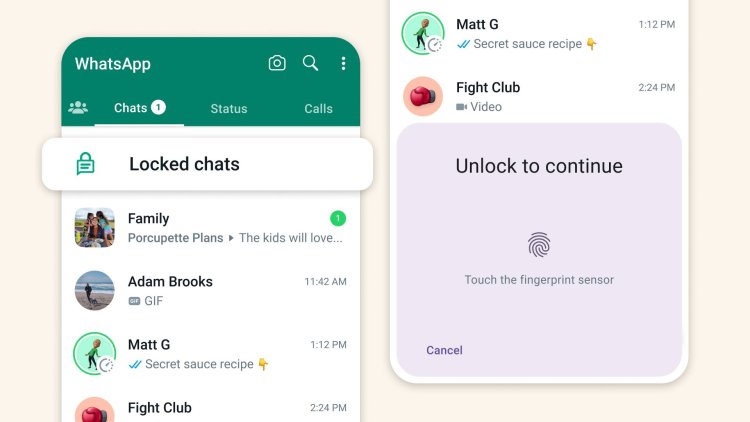WhatsApp Strengthens Feature For Hiding & Locking Your Private Conversations
Zuckerberg noted that the feature will prevent instances where someone can gain access to the locked messages without permission.

Meta, which owns Facebook, WhatsApp and Instagram, on Friday, November 1 added a new security feature in a bid to prevent those nosy friends and family among others from snooping anyhow into your secret WhatsApp conversations.
Meta Chief Executive Officer (CEO) Mark Zuckerberg announced the rollout of the Secret Code feature in Chat Lock, which works just like a password.
Through this feature, the locked chats will only appear on someone's account once the secret code is keyed in.
Zuckerberg noted that the feature will prevent instances where someone can gain access to the locked messages without permission or authorisation.

An illustration of Mark Zuckerberg's created secret code for his locked chats on WhatsApp. /MARK ZUCKERBERG
"Rolling out secret code to Chat Lock on WhatsApp so you can protect your chats with a unique password. Now you can set your locked chats to only appear when you type the secret code in the search bar, so no one can "unintentionally" discover your most private conversations," stated Zuckerberg on his WhatsApp Channel.
This new feature will see WhatsApp users set a password of their choice which will be used to unlock the chats.
However, it is wise to use a password which is entirely different from the one used to unlock your phone, for purposes of strengthening privacy.
"You'll have the option to hide the Locked Chats folder from your chatlist so they can only be discovered by typing your secret code in the search bar. If that doesn’t suit your needs, you can still choose to have them appear in your chatlist.
"Whenever there’s a new chat which you want to lock, you can now long press to lock it rather than visiting the chat’s settings," WhatsApp, in a separate statement, added.
The new feature will be available globally, including to Kenyans, in the coming weeks.
How It Works
The feature separates chats by moving them from the application's regular feed to a special folder that can only be opened by way of a user's password or biometric authentication.
For extra security, chats in the Chat Lock feature will not display notifications, in an aim to protect users fond of having intimate conversations, especially those in relationships.
When a user receives a new message in a locked chat, the name of the sender as well as the summary of the message will be hidden. To gain access, the user will need to unlock the chat to display its contents.
This means that users can lock a chat by tapping the name and selecting the Chat Lock option. To reveal the chats, one is required to pull down their inbox and enter their password or biometric data.
"We think this feature will be great for people who have reason to share their phones from time to time with a family member or those moments where someone else is holding your phone at the exact moment an extra special chat arrives.
"You can lock a chat by tapping the name of a one-to-one or group and selecting the lock option. To reveal these chats, slowly pull down on your inbox and enter your phone password or biometric," WhatsApp revealed in its blog post on Monday, May 15.
How To Use It
- Open the chat of the person whose messages you want to lock and click on their name at the top.
- Scroll until you get the chat lock option and set the lock option, such as locking chat using fingerprints.
"We think this feature will be great for people who have reason to share their phones from time to time with a family member or those moments where someone else is holding your phone at the exact moment an extra special chat arrives.
"To reveal these chats, slowly pull down on your inbox and enter your phone password or biometric," WhatsApp indicated.

Screenshot of WhatsApp's new 'Chat Lock' feature. /FACEBOOK.MARK ZUCKERBERG
Privacy Concerns
However, there were some concerns that were expressed among beta testers regarding the potential hacking and sharing of passwords used in other applications such that a user can click on a saved password automatically to gain access to the chats.
This is despite one of WhatsApp's security features such as end-to-end encryption on chats, media and calls available for every phone.

 admin
admin 




